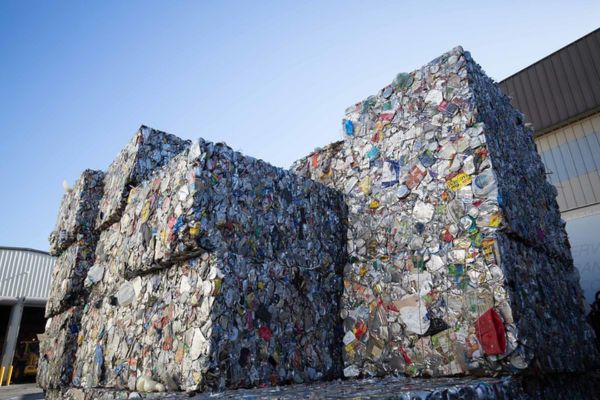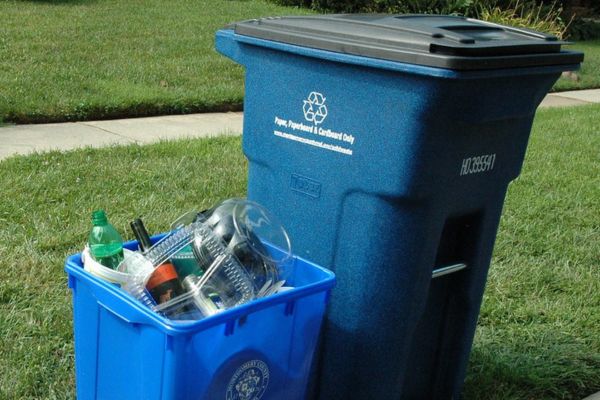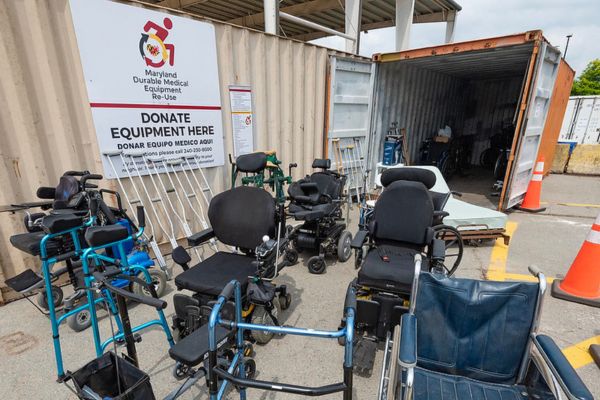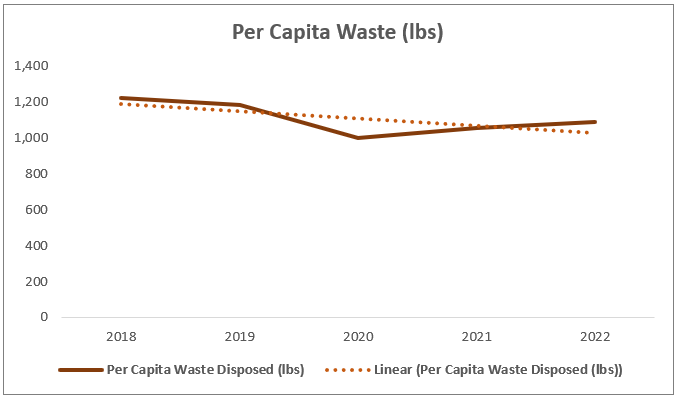Montgomery County's Recycling Summary 2022/2023
 Montgomery County is committed to serving as a model for both the state and country through continuous improvement of our materials management system. To this end, Montgomery County continues to improve waste reduction and recycling rates through expanded waste reduction, recycling and reuse programs and public engagement activities.
Montgomery County is committed to serving as a model for both the state and country through continuous improvement of our materials management system. To this end, Montgomery County continues to improve waste reduction and recycling rates through expanded waste reduction, recycling and reuse programs and public engagement activities.
The Department of Environmental Protection (DEP) includes all materials being reused and recycled by the County in its recycling rate calculation. These materials include glass, plastics, paper, tires, electronics, mixed metals, scrap automobiles, construction and demolition debris, asphalt, concrete, motor and other types of oil and grease, liquid animal protein, animal carcasses, paints, textiles, propane tanks, manure, food waste for animal feed, industrial fluids, mercury, and hazardous household waste. The County also continues to expand the ways residents can recycle, including curbside collection and dropping off items at the County’s Recycling Center and Transfer Station. DEP’s website has information on how and where to recycle these items.
Recycling Rates Continue to Improve
 The County’s overall recycling rate is 45% as of 2022, well above the national recycling rate of 32%. The County has increased recycling of glass, paper, plastic, tires, electronics, and various construction and demolition materials since 2020.
The County’s overall recycling rate is 45% as of 2022, well above the national recycling rate of 32%. The County has increased recycling of glass, paper, plastic, tires, electronics, and various construction and demolition materials since 2020.
Between 2020 and 2022:
- Plastic recycling increased by 110%
- Construction and Demolition Materials recycling increased by 58%
- Tire recycling increased by 32%
- Mixed Paper recycling increased by 15%
- Electronics recycling increased by 7%
- Glass recycling increased by 3%
Ongoing Expansion of Recycling Programs
 Montgomery County is dedicated to expanding and diversifying how the county handles its solid waste and recycling. This includes expanding commercial and residential food scrap composting programs and adding to the list of materials accepted for recycling.
Montgomery County is dedicated to expanding and diversifying how the county handles its solid waste and recycling. This includes expanding commercial and residential food scrap composting programs and adding to the list of materials accepted for recycling.
In 2023, DEP began accepting new materials for recycling and reuse, including mattresses/box springs and medical durable equipment. During CY23, DEP collected 251.5 tons of mattresses/box springs and 18 tons of durable medical equipment.
DEP has expanded the list of electronics that can be recycled at the transfer station, including audio and video tapes, empty printer ink cartridges, and handheld electric tools.
DEP manages the nationally recognized Commercial Food Scraps Recycling Partnership Program, which works intensively with commercial generators of food scraps to increase food scraps recycling. Through this program, DEP helps businesses establish on-site efforts to separate food scraps and deliver them to a composting facility in the region, where they are processed and used to create a useful soil amendment that returns to the marketplace. All businesses and organizations that have graduated from this program continue to recycle their food scraps.
DEP is also working to provide curbside recycling collection of food scraps to all single-family homes in the County, starting with over 1,500 homes in a pilot program. The data, information and feedback gathered in the pilot will be used to inform the planning for the future countywide program.
Reducing Waste as Our Population Grows
The County continues to make progress in engaging the community and increasing recycling as the County’s population grows. Since 2018, the County has consistently reduced the amount of waste that it disposes of even as the population continues to grow. The amount of waste disposed of per person has decreased by 11% from 2018 to 2022 (as shown in the graph below). This reduction can be attributed largely to the County’s work to increase recycling and the public efforts to reduce, reuse, and recycle more.
Per Capita Waste Disposed
